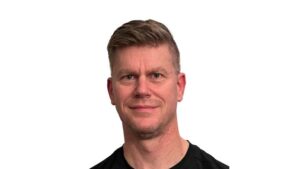
From Lake Superior to Public Service—A Story of Purpose, Planning, and People
Jonathan Bergsma is a dedicated public servant and recruiter for the Ontario Government’s Treasury Board Secretariat. Born in Georgetown, Ontario, Jonathan’s journey began in the quiet rhythms of small-town life and evolved through diverse stages—from student-athlete at the University of Toronto to a respected 23-year career in law enforcement, culminating in his leadership as a Detachment Commander. While he prefers not to spotlight his policing career, it instilled in him an unshakable sense of discipline, integrity, and empathy.
Now in recruitment, Jonathan channels his experience and people-first approach into helping others find meaningful roles within the public sector. A lifelong learner and meticulous planner, he balances career commitment with a deep passion for the outdoors. He’s an accomplished solo sailor, fitness enthusiast, and runner who values resilience and reflection. Community involvement is central to his life, whether through peer support for first responders, volunteering at local food programs, or serving on the board of a trail association. Jonathan Bergsma believes success flows between personal fulfillment and professional purpose—and he navigates both with calm, clarity, and compassion.
What initially drew you to a career in public service?
I’ve always been drawn to work that centers on people—helping, guiding, or protecting them. Public service offers a platform to impact lives on a deeply human level. After years in law enforcement, transitioning to recruitment within government allowed me to continue serving, but now with a focus on helping people find purpose in their careers. It’s a different kind of support, but just as meaningful.
How has your background in English and History shaped your approach to recruitment?
Studying English and History gave me tools I use every day—critical thinking, empathy, narrative awareness. Everyone who comes to a recruiter has a story. Understanding how to listen to that story, ask thoughtful questions, and then connect someone to an opportunity that aligns with their goals is all about interpretation and context. My academic background helps me see the broader picture.
You’ve made a solo crossing of Lake Superior. What did that experience teach you about yourself?
Sailing solo is raw—there’s no one else to rely on. Lake Superior is beautiful but unforgiving. It forced me to confront discomfort, manage fear, and trust my preparation. I learned that I’m more resilient than I imagined. But also, that humility is essential. Nature doesn’t care about your plan. You adjust, adapt, and sometimes, you pause—something I’ve brought into my work life too.
What are some lessons from your athletic days that still resonate with you professionally?
Rowing taught me consistency and endurance. It’s about showing up, even when your body wants to quit. In recruitment, there are long days, complex processes, and sometimes setbacks. That athlete’s mindset—to keep pushing, stay focused, and remember your “why”—has been invaluable. Also, being part of a crew instills an appreciation for teamwork, which is foundational in public service.
What does a “people-first” mindset mean to you in your day-to-day work?
It means every interaction is an opportunity to build trust. Whether I’m guiding someone through a government hiring process or reviewing a résumé, I remind myself there’s a person on the other end who may be nervous, hopeful, or uncertain. Treating each case with empathy and attention not only improves outcomes but also reinforces the dignity of public service.
How do you balance a meticulous planning style with the unpredictability of life and work?
Great question. I believe in structured flexibility. I plan because it creates a sense of control, but I’m not rigid. Sailing teaches this too—you set a course, but you’re constantly adjusting to the wind. The key is to remain open to change without losing your direction. Preparation gives me the confidence to handle surprises without unraveling.
Why did you choose to move away from highlighting your policing background?
Policing was a major part of my life, and I’m proud of the work I did. But I want to focus on who I am today and the future I’m building. There are elements of that experience—leadership, crisis management, community service—that inform my current role, but I prefer to let those values show through my actions, not just a title.
What role does volunteering play in your personal sense of fulfillment?
It’s huge. Volunteering reminds me that connection and service exist outside of job descriptions. Peer support, soup kitchens, and trail advocacy allow me to give back without agenda. These experiences keep me grounded and remind me that small actions—like listening or lifting—can have ripple effects. It’s a different kind of purpose, but just as enriching.
What does “success” look like to you now, compared to earlier in your career?
Earlier, success was more about achievement—roles, promotions, outcomes. Now, it’s about alignment. Am I living in a way that reflects my values? Am I contributing meaningfully? Success is the flow between personal joy and professional purpose. It’s not about always being in balance—because life rarely is—but about recognizing when one area can fuel and elevate the other.
If you could give one piece of advice to someone navigating a career change, what would it be?
Give yourself permission to evolve. We often cling to past roles because they’re familiar or prestigious. But growth comes from stepping into discomfort. Reflect honestly on what energizes you, be intentional about your next move, and don’t underestimate the value of your story—even if it doesn’t follow a straight line. Your experience matters more than you think.
Read more:
An Interview with Jonathan Bergsma: Charting New Courses







